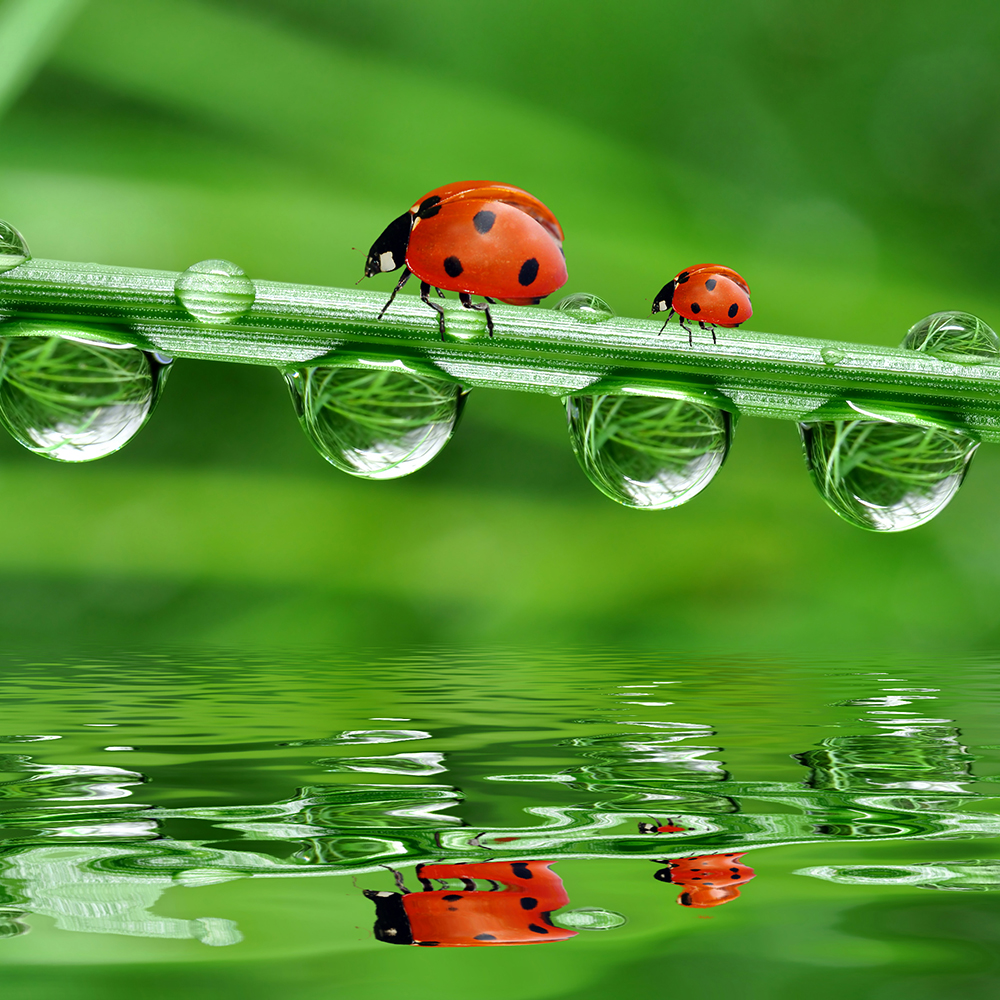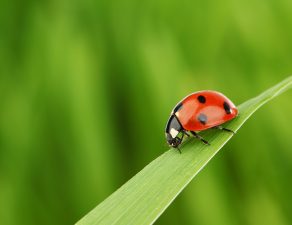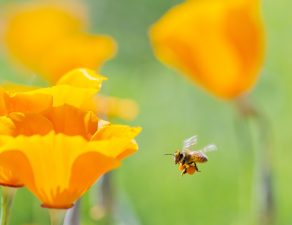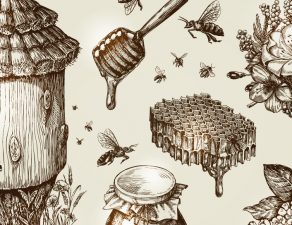
Squeamishness around insects is a normal reaction in most people. So, you’re probably not too pleased to step into your garden and spot creepy crawlies everywhere. But before you dash off to purchase insecticides, do your research to discover whether those insects are even harmful. Some “pests” are actually beneficial to your garden, such as…
Aphid midge. Aphids can be awfully destructive to a garden, but aphid midges will destroy them. They’re attracted to pollen plants, so consider that when designing your garden space.
Ground beetles. These are different from Japanese beetles, which can be destructive to a variety of trees, shrubs, and flowering plants. Common ground beetles will feed on slugs, caterpillars, and cabbage maggots. A groundcover like white clover can provide the perfect home for ground beetles to flourish.
Lacewings. Lacewings will to control aphid, caterpillar, scales, whiteflies, and mealybug populations. Plant sweet alyssum, angelica, or coreopsis to attract them to your garden.
Ladybugs. A population of ladybugs can wipe out aphids, mealybugs, and mites quite effectively. This is especially true if you can get them to stick around and breed, because ladybug larvae are insatiably hungry! You can purchase ladybugs to release in your garden, or plant angelica, dill, fennel, yarrow, or coreopsis to attract them.
Tachinid flies. If caterpillars are a problem in your garden, you want some tachinid flies. Their larvae burrow into caterpillars and destroy them. They’re attracted to dill, clover, parsley, and other herbs.
Spined soldier bug. These look a lot like pesky stink bugs, but their pointed “shoulders” will differentiate them. Since they feed on other harmful insects, it’s okay to leave them alone. Take a picture and decide whether you have soldier bugs or stink bugs.
Damsel bugs. These can be released around vegetable gardens to control aphids, leafhoppers, thrips, and other invasive pests.
If you need help identifying your particular garden pest, come visit us at our nursery. Describe the pest to us, or better yet, bring a photo. We can help you decide how to proceed, whether you want to use an insecticide or a more environmentally-friendly pest control method.








